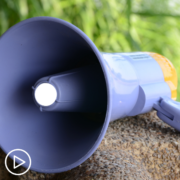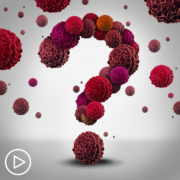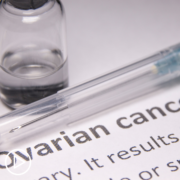What Treatment Options Are Available for Relapsed Follicular Lymphoma?
What Treatment Options Are Available for Relapsed Follicular Lymphoma? from Patient Empowerment Network on Vimeo.
Dr. Tycel Phillips answers a patient question regarding relapsed follicular lymphoma and discusses available treatment approaches for relapsed patients.
Dr. Tycel Jovelle Phillips is a Medical Oncologist in the Hematology Clinic at The University of Michigan Rogel Cancer Center. Learn more about Dr. Phillips, here.
See More from The Pro-Active Follicular Lymphoma Patient Toolkit
Related Programs:

|

|

Why Follicular Lymphoma Patients Should Speak Up About Symptoms and Side Effects |
Transcript:
Katherine:
We received this question from an audience member prior to the program. Angela asks, “What if I relapse after treatment? What are my options then?”
Dr. Phillips:
So, a lot of that, again, depends on the timing. If you relapse early, obviously whatever we gave you in the frontline we would not repeat. And again, if it’s within the 24-month period, again, that takes you on the road of POD24. Wherein patients who are fit enough, it would take you to a route where you would actually probably get a transplant. It’s consolidation to extend our true progression sabbatical.
If you relapse after 24 months, that would really depend on what you received in the frontline because some of these agents can be repeated. If we don’t repeat what you’ve had in a frontline setting – so again, if you’ve got R chemo, then a second line setting, normally what we would do now, based on published data from the augment study, is we would typically treat these patients with Rituximab and lenalidomide, which is that oral medication.
That’s typically if you did receive lenalidomide in the frontline setting and you would not want to repeat that, then we would typically give you R chemo in a second line setting. Again, in most of those situations, it would be RCP or Bendamustine and Rituximab.










